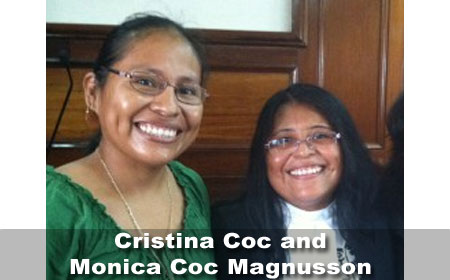BELIZE CITY, Wed. July 20, 2016–The Toledo Maya and the Government of Belize were back before the Caribbean Court of Justice via teleconference from Belize City on Tuesday, July 19, 2016, as the court continues to play an important role in helping the parties resolve a land rights dispute that has been ongoing for decades.
In January 2016, the Government of Belize, under the Attorney General’s ministry, appointed the Toledo Maya Land Rights Commission, headed by former Minister for indigenous affairs, Lisel Alamilla.
Denys Barrow, SC, attorney for the Government of Belize, told us that in January 2017, the parties will make a further report to the CCJ, detailing how far they have reached in the process. Although he told us that he is not sure whether the Commission will have concluded its work by then, he told us that he expects that at the least, consultations will have been finished.
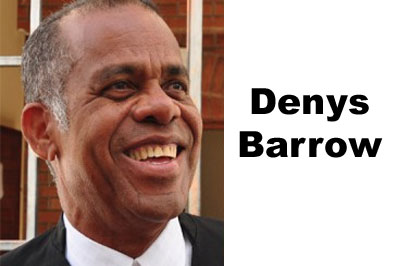
A number of issues came up in court on Tuesday, including why the Government did not include a Maya on the Commission, the way consultations have been conducted, and whether there could be a more effective means of settling disputes between the parties over alleged violations.
Both the Government and the Toledo Maya submitted reports to the CCJ, which retains supervision of the implementation of the April 2015 order by the court. We spoke with both sides about this week’s CCJ session.
Maya representation on Commission
According to Barrow, the Maya made representations to the CCJ that there should have been an indigenous person on the Commission. In light of alleged violations, the CCJ asked whether or not the Government would be willing to have an indigenous person sit on the Commission.
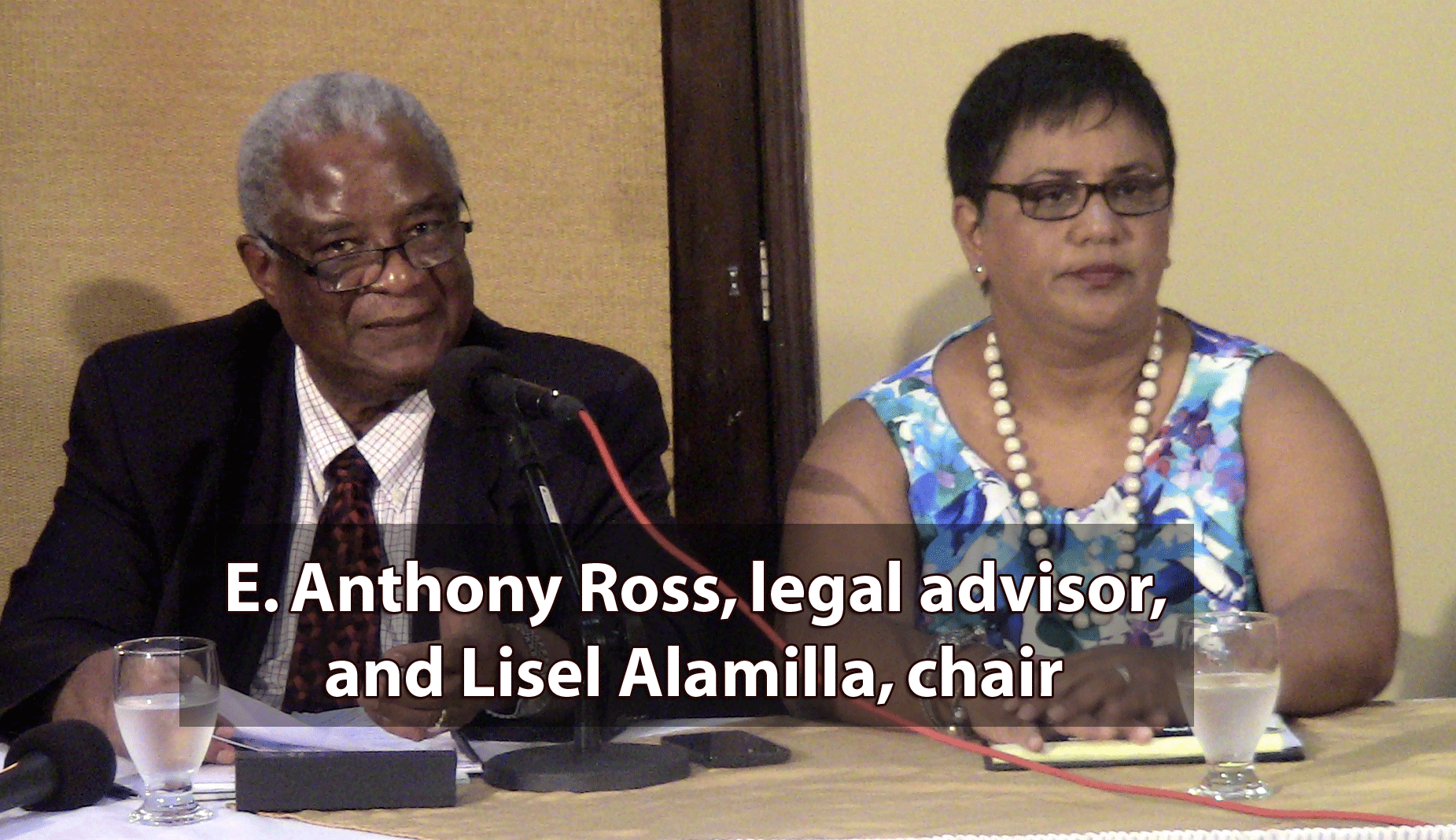
Apart from chairperson Alamilla, the other members of the Commission are former Lands Commissioner Noreen Fairweather and Randall Shepherd; crown counsel in the Attorney General’s Ministry. E. Anthony Ross, QC; and a legal expert in indigenous affairs originally from St. Kitts & Nevis, who is also working with the Commission.
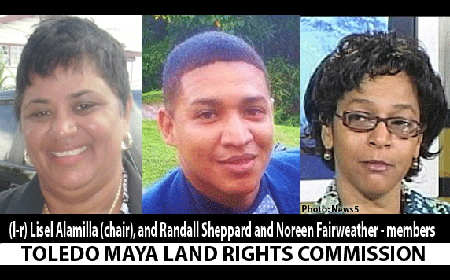
“Clearly, the Commission has been functioning without any Maya person on it,” Barrow told us, asserting that there is no need for a Maya person to sit on the Commission, since its mandate is to consult with the Maya people in carrying out the CCJ order.
The Maya do have a steering committee, commissioned by their elders to communicate their position to the Commission, but the proposal is for a seat on the Commission to be filled by an indigenous person.
Issues with the consultation process
Cristina Coc, spokesperson for the Toledo Alcaldes Association (TAA) and the Maya Leaders Alliance (MLA), said that the CCJ judges probed them on complaints from the Maya over the way that the Commission has been engaging communities.
She said that she learned for the first time Tuesday that the Government views this process that has been happening since April of 2015 as an “exploratory” consultation, to figure out what they need to do.
That is “disappointing,” said Coc, because the Maya people have waited for 35 years to see this decision being made definitively and they believe that the Government is not taking this issue seriously.
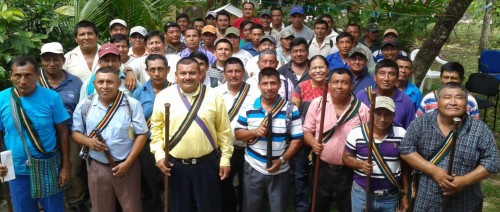
“We continue to reiterate the fact that we do not see the Government acting in good faith. In fact, we do not see the Government taking this issue serious and making good on the steps that need to be taken, particularly with respect to redress for violations that are ongoing: illegal logging that’s ongoing on Maya lands that are not being protected, trespass on Maya lands that are not being protected,” Coc told us.
Coc said that they also have issues with the fact that the Commission does not seem to have a roadmap or a work plan and that there have been significant delays in the implementation of the CCJ order.
“At the same time, there’s been significant violations and incursions, and interference of Maya people’s land with no protection granted, which was ordered by the CCJ—a protection of those rights under the laws of Belize,” Coc commented.
Redress for land rights violations
The court, Barrow said, suggested that a body or person like an ombudsman could be appointed to help resolve allegations of trespass on Maya lands and other such allegations, so as not to burden the court and the parties with proceedings that would prove to be expensive. Barrow said that he can agree with that point of view, and he will recommend that to the Government.
“Before such a body can be established, the consultation process needs to be complete, as far as they are concerned, and out of that we would expect recommendations to come from the Commission, as to the way forward”, he added.
“The question of the stage at which a quasi-judicial body or a technical body to suggest legislative input to suggest what the legislation to be created or to suggest what administrative body or bodies should be created all would come after the consultation process has taken,” Barrow said.
Where has the reparation award gone?
Last October, the CCJ awarded the Maya $300,000 in reparations—but not as cash-in-hand. The funds were to be used to finance the process of implementing the court order. On Tuesday, the CCJ asked the Government side to provide an accounting of the funds spent to date. Coc said that they heard from the Government’s counsel that the $300,000 awarded in reparations has already been exhausted and that they are committing another $500,000.
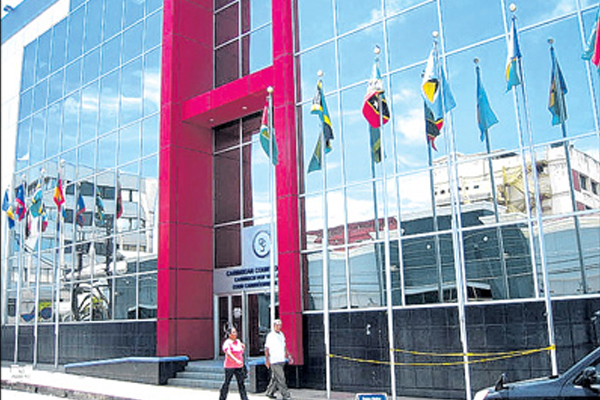
Barrow said that a promise was made to the CCJ that they will also get an accounting from the Government which will detail the precise items on which every dollar was spent and submit that to the CCJ. There is no deadline, he said, but it will be done as early as possible. He added that they would request that the Finance Officer in the Attorney General’s Ministry provides that statement to the CCJ.
The Maya representatives have said that twice when the Maya communities which had incurred bus transportation expenses sought reimbursements, they were told that it could not be given. At the same time, they said, they have records to show that the Commission has paid NGO representatives to come to stakeholder meetings.
Coc questioned: “Why are the Maya denied but on the other hand, NGOs which seem to have more resources than subsistence farmers are given?”
Coc told us that the Government made three undertakings: that they will give a full accounting of monies expended to date; that they will consider and come back and report on whether they will set up a body to address some of the land rights violations and possible redress; and that they will consider adoption of a joint commission that will include an indigenous person—not one appointed by the Government but by Maya people themselves.
(Amandala thanks Aaron Humes of KREM News for sharing their interview with us.)

